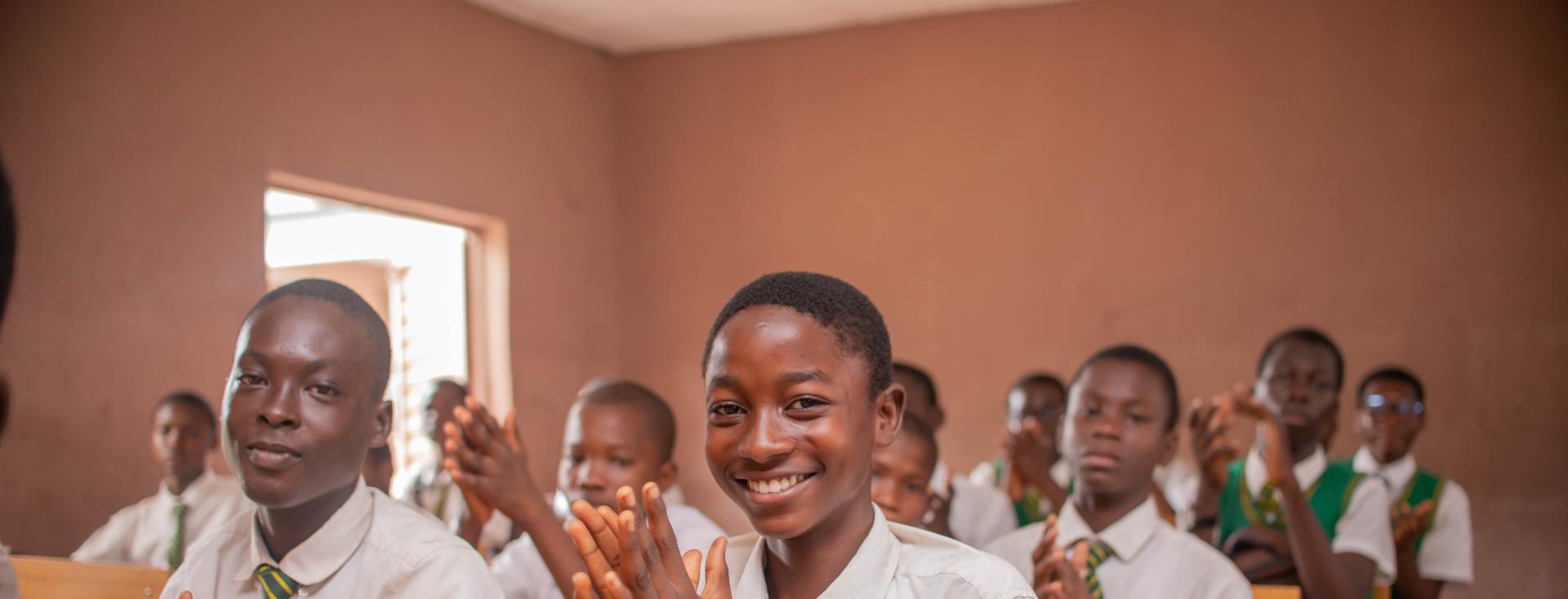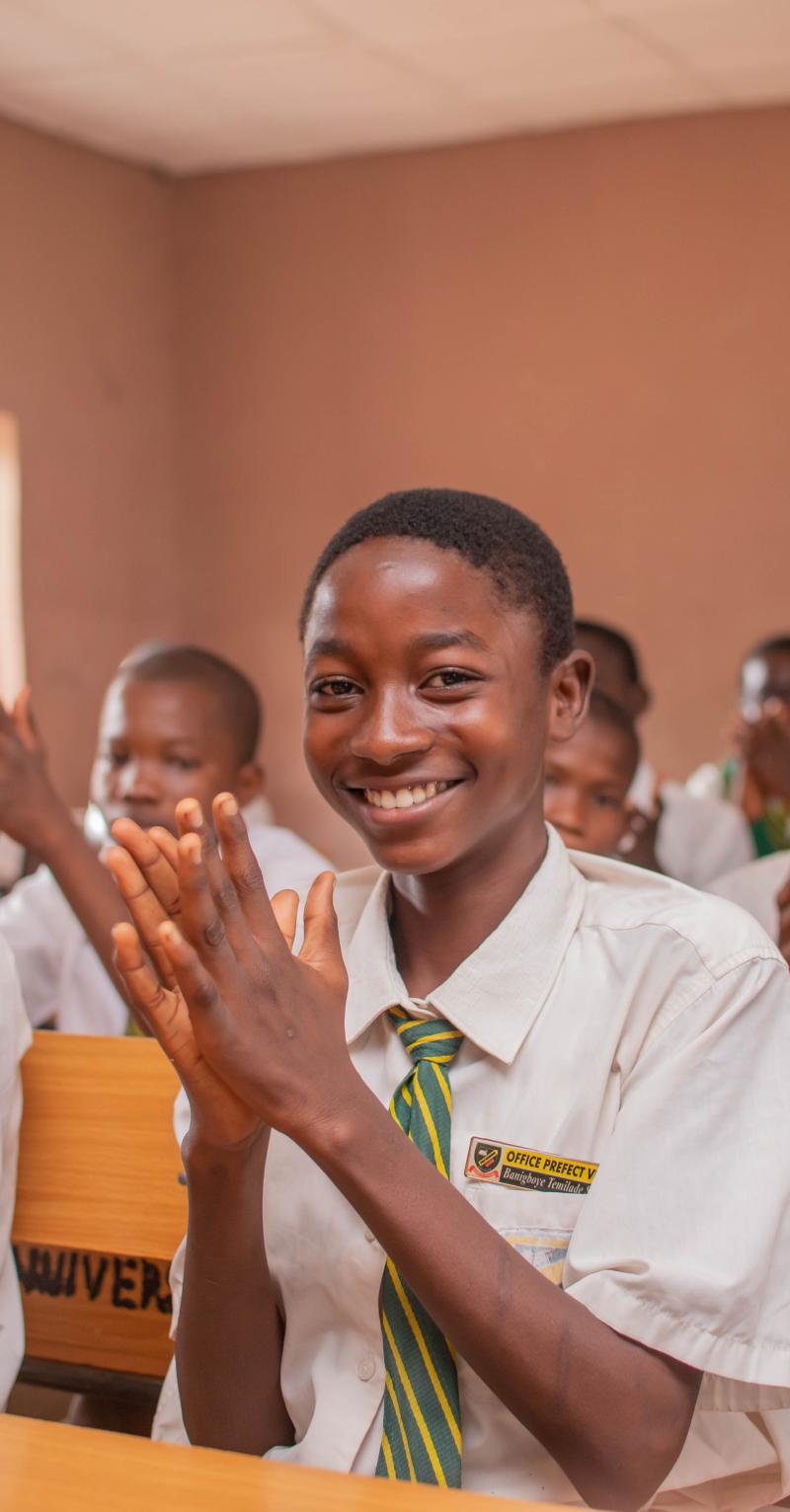Overview
We are finding clear patterns in the ways transformational teachers make meaning of their experiences. These patterns show up in how they interpret and make sense of their students, their own role as teachers, their communities, and the challenges we all face.
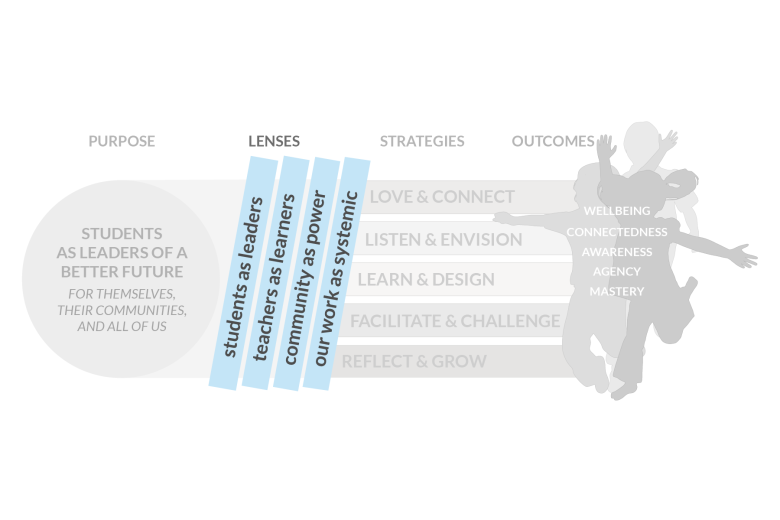
Discover
Experience many voices bringing these lenses to life. To start, check out this compilation of student, teacher, and family perspectives.
Learn and do
When we commit to growing students as leaders, that purpose shifts our perspectives. And perspectives shift our actions.
These lens shifts are critical because they help teachers navigate the complex and dynamic challenges of teaching, help us see misalignment between our aims and our actions, and surface assumptions about our students, ourselves, our community, and our work that we might not realize we carry.
Four ways of seeing and making meaning consistently surface in transformational classrooms:
Students as leaders
We see our students as whole and intelligent people who are capable of shaping their own lives and the world around them
. . . instead of as passive “vessels” to be filled with knowledge.
Teachers as learners
We see ourselves as lifelong learners who respond to challenges with curiosity, humility, and creativity
. . . instead of as the sole source of knowledge and skills that students need.
Community as power
We see communities as sources of power and wisdom and recognize that lasting change requires authentic partnership with students, families, and other educators
. . . instead of as places with difficult challenges and unaddressed needs.
Our work as systemic
We see our work as challenging the root causes of injustices that inhibit students’ potential—systemic barriers around us and limiting beliefs inside us
. . . instead of teaching students to work extra hard to adapt to injustices around them.
Lenses have profound implications for teacher development. Learning new knowledge can come through exposure and practice, while developing new ways of seeing and interpreting the world comes through disorienting experiences and reflection.
We have gathered tools to provoke reflections that help shift lenses.
“Lenses give not only a language but a perspective that we can bring into reflection, to coaching, to training—to all that we do. A unifying language that is more aligned with our vision.”
— Maria Azevedo, Co-founder and Head of Program at Teach For Portugal
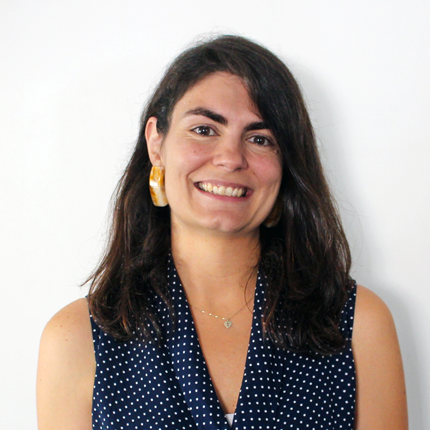
“Lenses give not only a language but a perspective that we can bring into reflection, to coaching, to training–to all that we do. A unifying language that is more aligned with our vision.”
— Maria Azevedo, Co-founder and Head of Program at Teach For Portugal

“Lenses give not only a language but a perspective that we can bring into reflection, to coaching, to training–to all that we do. A unifying language that is more aligned with our vision.”
— Maria Azevedo, Co-founder and Head of Program at Teach For Portugal
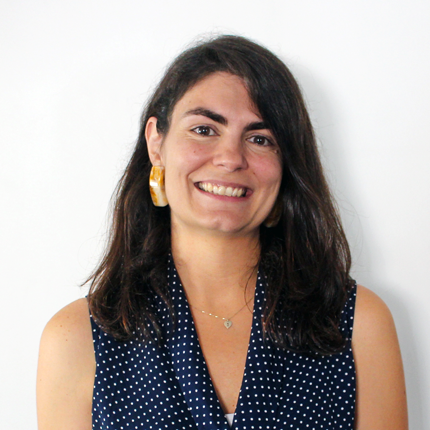
Do and reflect
Explore a wide variety of reflection exercises designed to help you (or to help you help others) become more aware of your own perspectives, as well as other recommended resources about Lenses:
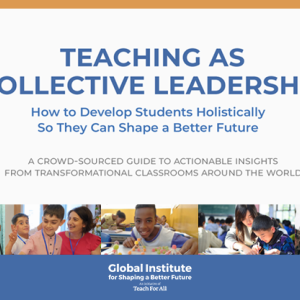
TACL
Teaching As Collective Leadership Guide (TACL) Guide
Over the past six years, more than 4,500 students, teachers, teacher coaches, community members, program designers, CEOs, researchers, and policymakers from across and beyond our network of 60+ partner organizations have contributed to these crowd-so...
TACL
Why Student Leadership Matters
Through this video from 2015, hear from teachers and alumni from across the Teach For All network as they break the barriers of conventional education to demonstrate why student leadership matters - not just for our students, but for our world.
TACL
Growing Together: A Journey of Transformation
In this video from 2015, Óliver Jabato Rodríguez, alongside his students and with the support of his coach, Toni Pedragosa, reflects on why he solicited students’ feedback to strengthen his classroom, and how he ultimately grew himself.
Pagination
Share
To share your insights, questions, resources, and challenges related to developing visions of student success, create a post on our Padlet using the "+" icon.
In this Padlet, the content is both user-generated and subject to moderation to ensure a safe and engaging experience.
Our Glossary
In our attempt to capture the real spirit of the classrooms we have studied, we have sometimes intentionally used words and phrases in a slightly unusual way.
We invite you to learn more about our language choices by exploring our Glossary
